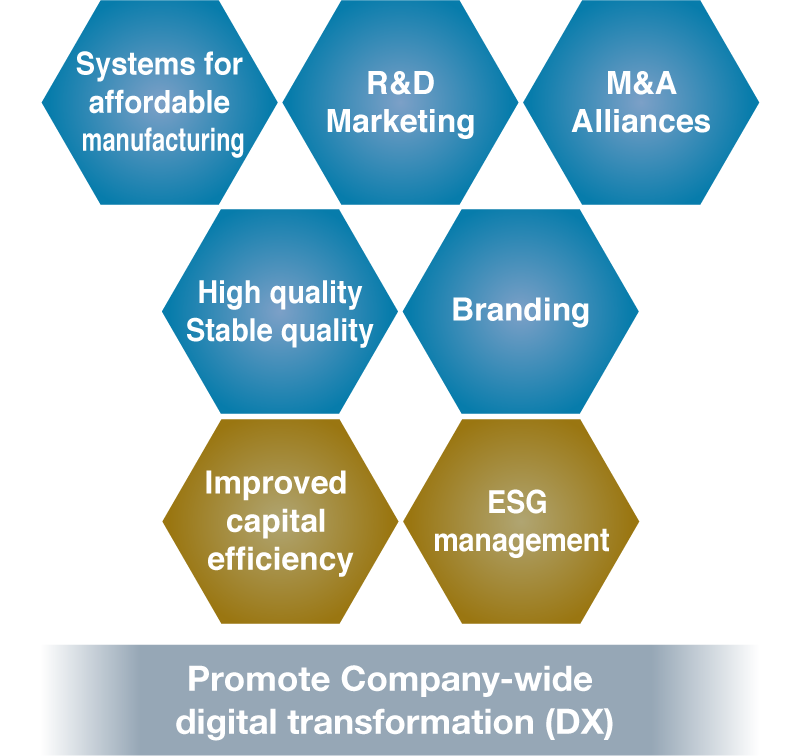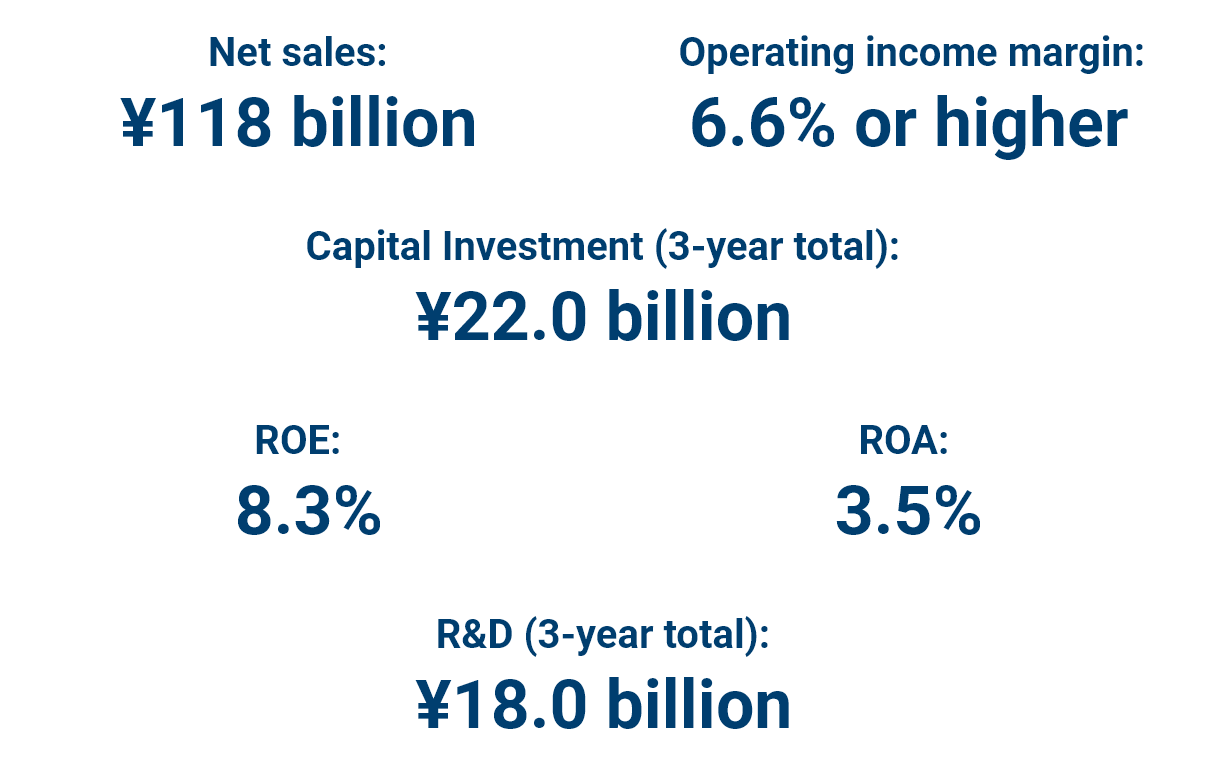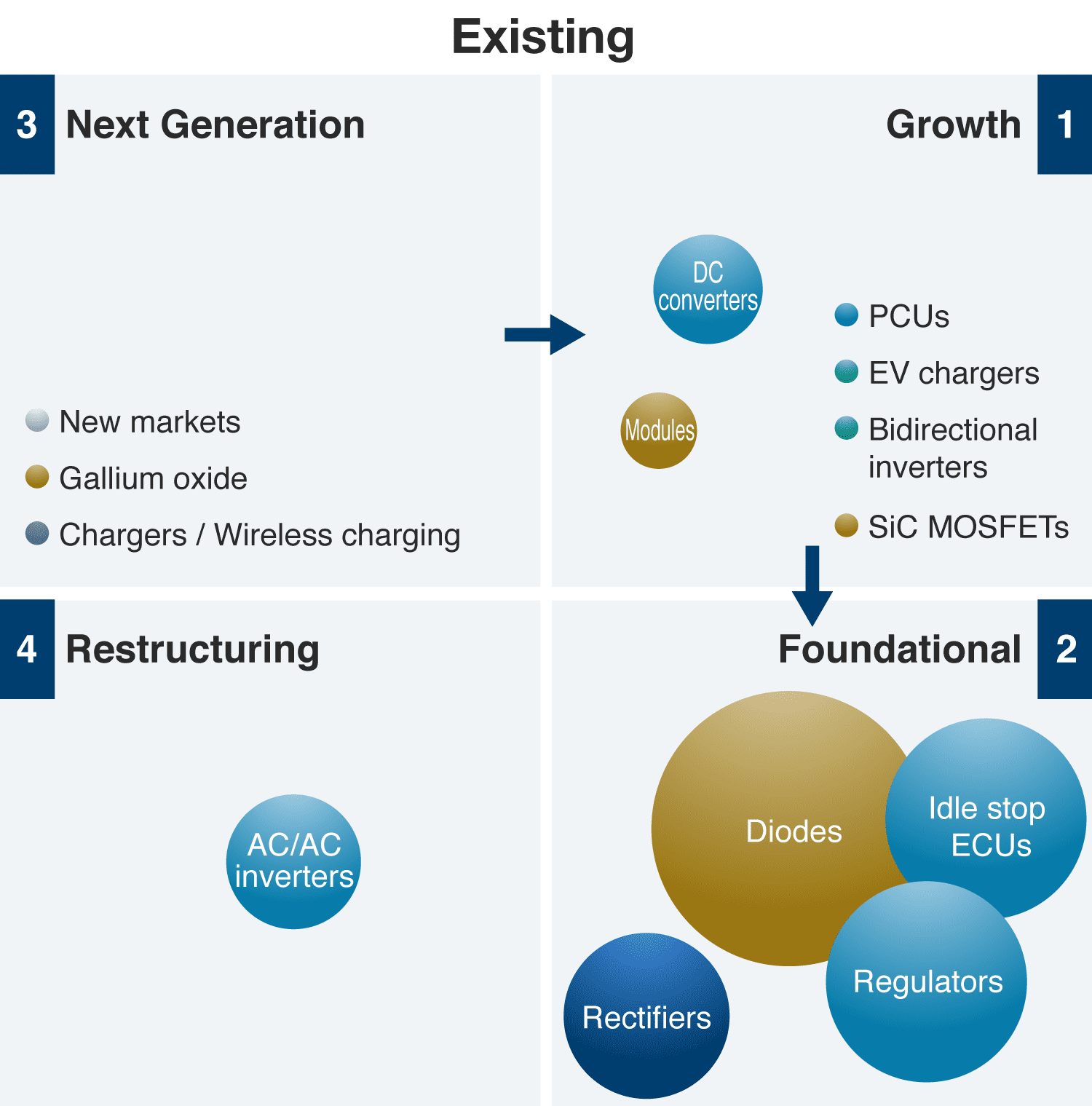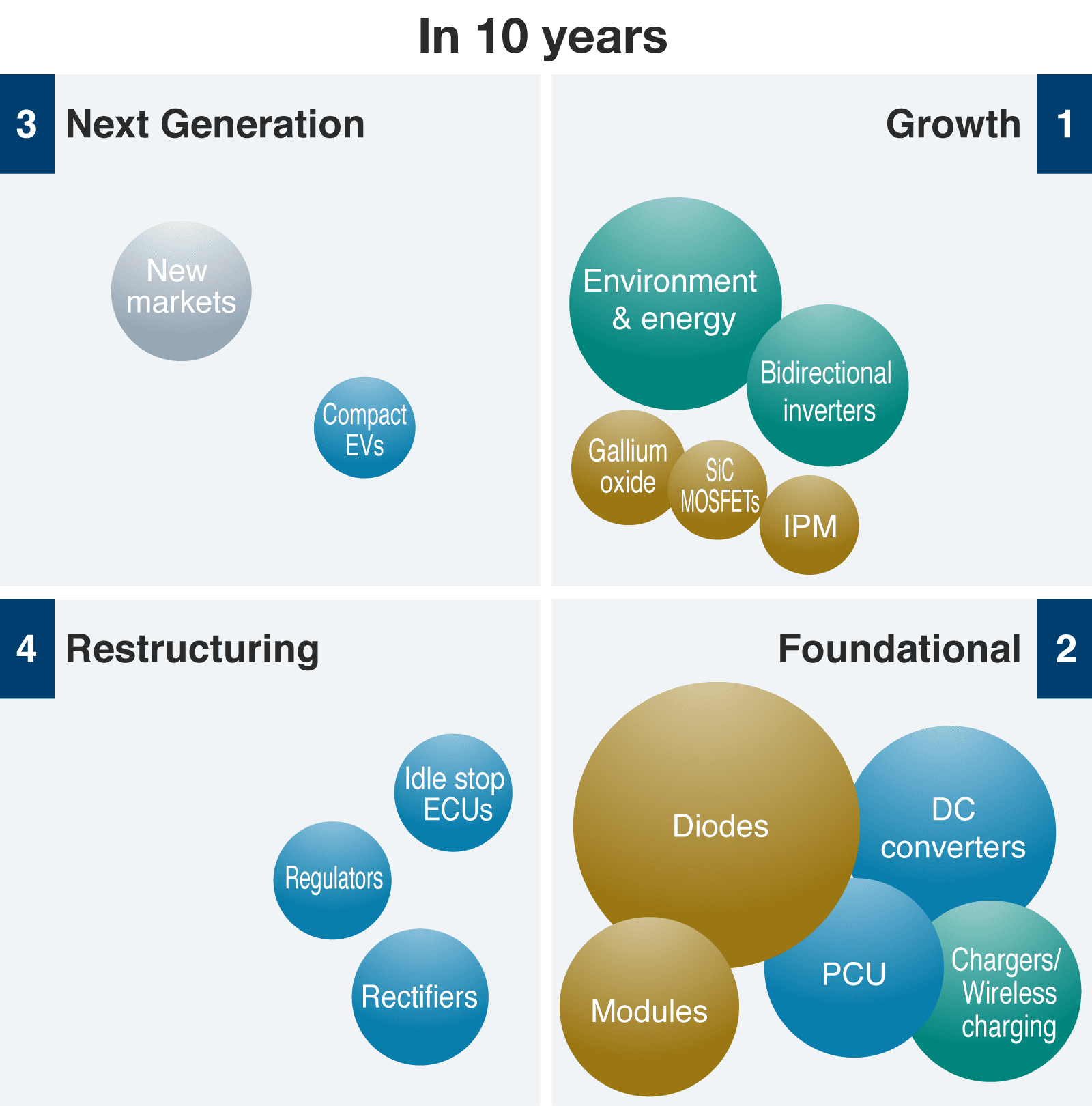Strategy
Long-Term Vision
Long-Term Vision 2030 (Fiscal 2021–Fiscal 2030)
A power electronics company which creates environmentally friendly cutting-edge solutions via innovative technologies, contributes to a sustainable society, and continues to be needed by all stakeholders
-
1
Expansion businesses:
Businesses that drive corporate growth. Proactively invest in these businesses and bring value-added products to market.
-
2
Foundational businesses:
Utilize competitive capabilities and track record to secure a competitive edge.
-
3
Next-generation businesses:
Fields that will support Shindengen's business in the future. Invest resources in fields that allow for the application of core technologies.
-
4
Restructuring businesses:
Analyze future trends and revise allocation of resources.
16th Medium Term Business Plan (Fiscal 2022–Fiscal 2024)
Management policy
Build a foundation aimed at the realization of Long-Term Vision 2030
Key Themes
-
1
Earnings structure construction (construct systems for affordable manufacturing)
-
2
Building a foundation for expansion of growth businesses (development of unique and appealing products, increase speed of market introduction)
-
3
Focusing resources on product groups that can reduce greenhouse gas emissions
We will broadly utilize digital transformation (DX) in the implementation of measures to realize the management policy.


Targets for Fiscal 2024


The Evolution of Shindengen’s Medium Term Business Plans
-
14th Medium Term Business Plan
(Fiscal 2016–Fiscal 2018)
Management policy
“Working toward technological superiority,” “speed” and “expanding overseas sales”
Purpose of the plan
Building the foundations for growth to reach the goals for fiscal 2021
Business Policies
-
1
Technological development
- Promote synergies centered on semiconductors
- Shorten development times
- Improve product quality
-
2
Strengthening overseas businesses
- Expand sales to non-Japanese customers in Europe, the Americas and Asia
- Promote and strengthen support systems
- Raise the overseas sales ratio
-
3
Promoting business transformation
- Revise existing businesses and products
- Steadily update the product mix
-
4
Driving down production costs
- Invest in labor saving
- Revise procurement methods
-
5
Improving management quality
- Develop globally oriented human resources to expand business in overseas markets
- Utilize ICT / Reinforce the BCP
Results
Achievements:
Reinforced overseas businesses
Advanced alliancesRemaining challenges:
Increasing earnings power
Speed -
-
15th Medium Term Business Plan
(Fiscal 2019–Fiscal 2021)
Management policy
Advancing product strategy for sustainable growth
Purpose of the plan
Building the foundations for growth to reach the goals for fiscal 2021
Business Policies
-
1
Enhance the competitiveness of mainstay products
Reinforce earnings power amid intensifying competition with mega-suppliers, local suppliers and new players by pursuing the following:
- Increase productivity
- Overall optimization
- Quality, added value
-
2
Develop growth businesses
- Effectively utilize external resources to make power modules and electric vehicle-related products our next business pillars
- Target the mobility and industrial machinery markets
-
3
Create next-generation products that are a decade ahead
- Move beyond existing business frameworks, possibly utilizing business alliances, to create next-generation products
Results
Achievements:
- Acquired new customers in the Indian motorcycle market
- Increased earnings power through Groupwide business structure reforms
- Secured agreements to supply new products for electrified vehicles
- Released the first high-output EV quick charger from a Japanese manufacturer
- Developed next-generation devices through external alliances
- Developed wireless charging systems
- Established the Future Product Development (FPD) Department
Remaining challenges:
- Further increasing the earnings power of the Electronic Device Business (consolidate clean rooms, increase wafer sizes, etc.)
- Creating high value-added products and reinforcing earnings power in power modules
- Commencing mass production of next-generation devices and expanding lineup of compatible products
- Utilizing external resources to accelerate development
-



